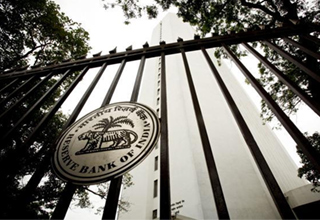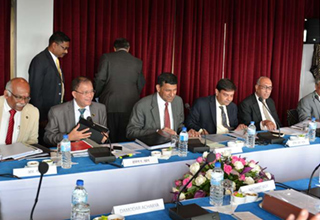RBI focuses on reducing NPAs of NBFCs; loans to SMEs also under scanner
Updated: Mar 22, 2014 01:27:30pm

The Reserve Bank has come out with final guidelines for the non-banking finance companies (NBFCs) with regard to the early detection and recovery of bad loans which will be effective from April 1.
The corrective action plan to arrest increasing NPAs requires that “early recognition of Stress and Reporting to Central Repository of Information on Large Credits (CRILC); before a loan account turns into an NPA, NBFCs will be required to identify incipient stress in the account by creating a sub-asset category 'special mention accounts' (SMA)," the RBI said yesterday.
The RBI has set up three categories of SMAs: SMA-0 - principal or interest payment not overdue for more than 30 days but account showing signs of incipient stress; SMA-1 - principal or interest payment overdue between 31-60 days; and SMA-2 - principal/ interest payment overdue for 61-180 days.
“The RBI had earlier set up a Central Repository of Information on Large Credits (CRILC) to collect, store, and disseminate credit data to lenders.”
The data includes credit information on all the borrowers having aggregate fund-based and non-fund based exposure of Rs 50 million and above.
The central bank has warned that if NBFCs fail to report SMA status of the accounts to CRILC or resort to methods with the intent to conceal the actual status of the accounts or evergreen the account, they will be subjected to accelerated provisioning for these accounts and other supervisor actions.
If a lender, who has agreed to loan restructuring under the corrective action plan (CAP) by joint lender forum (JLF) and is a signatory to the Inter Creditor Agreement (ICA) and Debtor Creditor Agreement (DCA), but changes the stance later on, or delays or refuses to implement the package, it will also be subjected to accelerated provisioning requirement on exposure to this borrower classified as an NPA.
"Any such backtracking by a lender might attract negative supervisory view during supervisory review and evaluation process," RBI warned.
RBI also asked NBFCs to identify non-co-operative borrowers and report them to CRILC.
A “ non-co-operative borrower” is defined as one who does not provide necessary information required by a lender to assess its financial health even after 2 reminders; or denies access to securities etc. as per terms of sanction or does not comply with other terms of loan agreements within stipulated period; or is hostile / indifferent / in denial mode to negotiate with the NBFC on repayment issues; or plays for time by giving false impression that some solution is on horizon; or resorts to vexatious tactics such as litigation to thwart timely resolution of the interest of the lender/s. The borrowers will be given 30 days’ notice to clarify their stand before their names are reported as non-cooperative borrowers.
With a view to discouraging borrowers/defaulters from being unreasonable and non-cooperative with lenders in their bonafide resolution/recovery efforts, NBFCs may classify such borrowers as non-cooperative borrowers, after giving them due notice if satisfactory clarifications are not furnished. Notified NBFCs will be required to report classification of such borrowers to CRILC.
"NBFCs will be required to make accelerated provisioning in respect of new loans to such borrowers as also new loans to any other company promoted by such promoters or directors or to a company on whose board any of the promoter or directors of this non-cooperative borrower is a director," the RBI said.
The provisioning applicable in such cases will be 5 percent if it is a standard account and accelerated provisioning if it is an NPA.
The RBI also asked the board of directors of NBFCs to take all the necessary steps to arrest the deteriorating asset quality in their books and to focus on improving the credit risk management system.
NBFCs should carry out their independent and objective credit appraisal in all cases of lending and must not depend on credit appraisal reports prepared by outside consultants, especially the in-house consultants of the borrowing entity, it said.
It also permitted NBFCs to sell NPAs to other banks, financial institutions or NBFCs without any initial holding period.
However, the non-performing financial asset should be held by the purchasing bank, FI, NBFC in its books at least for a period of 12 months before it is sold to other banks or financial institutions or NBFCs. (KNN/SD)











